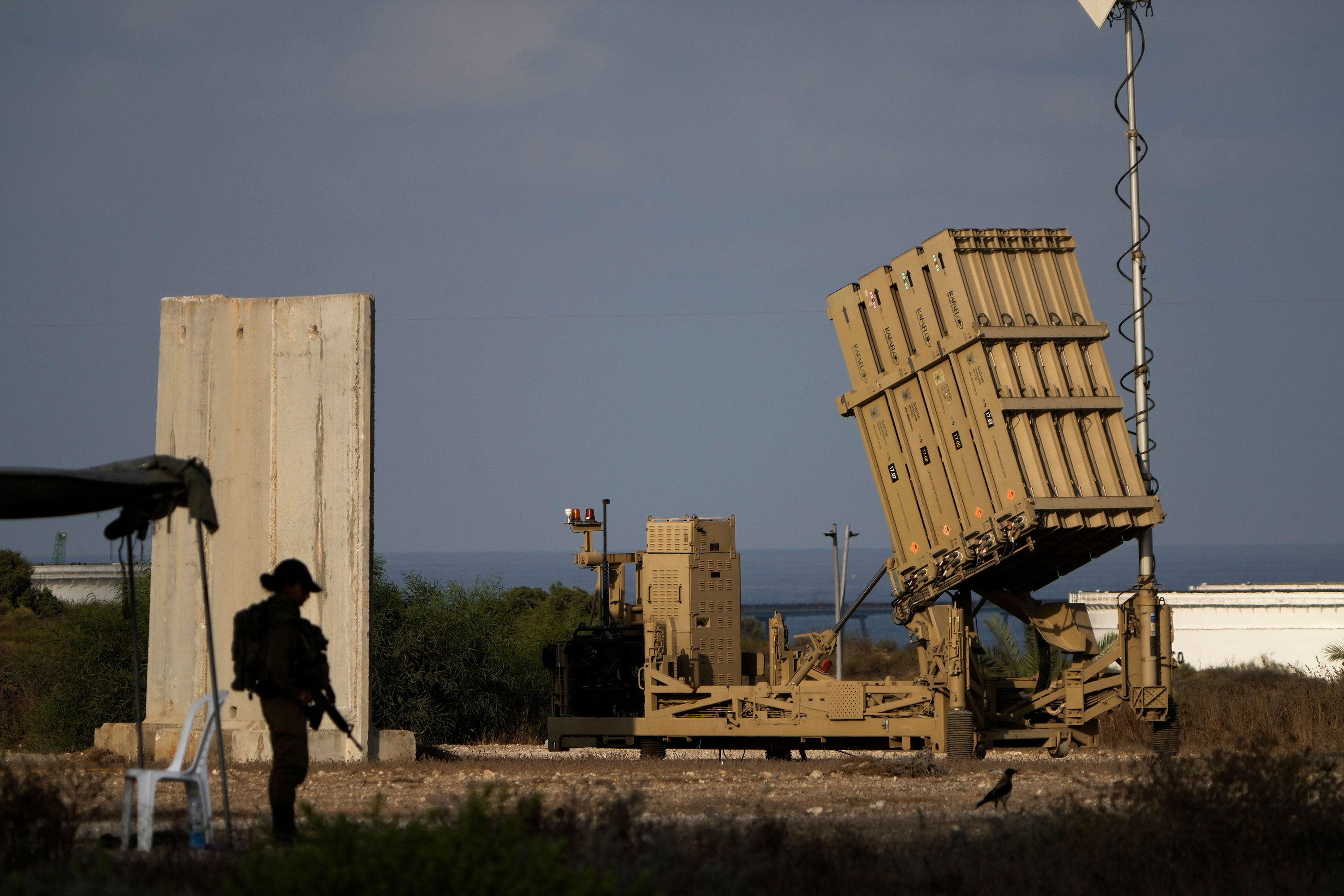Germany’s foreign minister says Iran’s attack puts entire region at risk of plunging “into chaos”


There are very few countries as prepared as Israel for Iran’s air attack, given its arsenal and experience with linked militant groups such as Hamas and Hezbollah.
The best-known of Israel’s air defense capabilities is the Iron Dome — a short-range system that has intercepted thousands of rockets and drones fired by both groups in the past few years. According to Israeli manufacturer Rafael Defense Systems, it boasts a 90% success rate. Earlier this week, Israel also debuted the maritime version of the Iron Dome, an air defense system known as “C-Dome,” to intercept a Houthi drone.
But the Iron Dome does have limitations: Some rockets have punched through — several fired by Hezbollah against Israel did on Friday — and the defense system is best suited for rockets or missiles fired from short distances. Its radar has a range of 4 to 70 kilometers (about 2.5 to 43 miles).
To deal with medium- to long-range missiles or drones — the type it will likely face in Iran’s attack on Saturday — Israel installed the David’s Sling system in 2017. With a range of up to 300 kilometers (about 186 miles), its main goal is to protect against and intercept large-caliber rockets, drones or short-range ballistic missiles.
“The David’s Sling system is capable of intercepting missiles fired towards Israel by enemy countries such as Iran and Syria,” the IDF said in a statement when the system was introduced.
In addition to these short and medium-range capabilities, Israel also has the Arrow 2 and Arrow 3 anti-ballistic missile systems, which are designed to target and strike long-range ballistic missiles at a range of up to 2,400 kilometers (1,491 miles). The Arrow 3 system has also been used to shoot down ballistic missiles in space.
In addition to these domestically developed air defense systems, Israel also operates US-made Patriot air defense systems, which have a reported range of up to 160 kilometers (about 99 miles) and can intercept most types of missiles. These have proven quite effective against Russian hypersonic missiles in Ukraine.
Israel can also deploy its extensive air force. Its fleet includes US-made F-15, F-16 and highly advanced fifth-generation F-35 jets. All of these can be equipped with air-to-air missiles and are capable of shooting down incoming drones or missiles.
